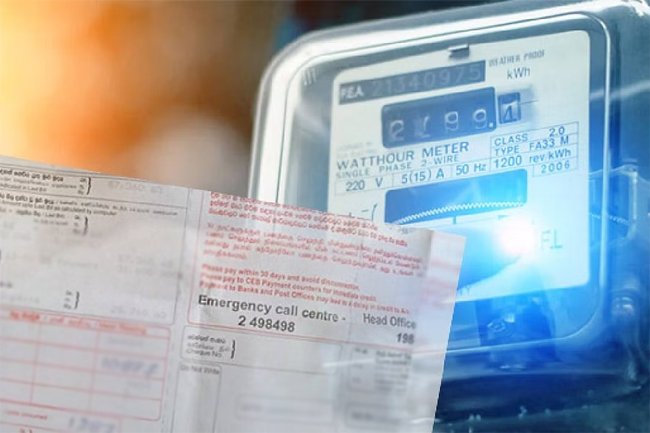Introduction: A Major Policy Shift
Sri Lanka’s economic landscape is set to undergo a significant transformation with the unveiling of the 2025 national budget. Among the most debated changes is the new tax policy on freelancers and individuals earning foreign exchange, scheduled to take effect on April 1, 2025. Under this proposal, a 15% tax will be imposed on foreign income, including earnings from freelance work, digital services, and other overseas transactions(Proposed Taxes on Freelancers). This marks a major departure from past tax exemptions, which were originally designed to attract foreign currency inflows and stabilize the economy.
While the government argues that this move is necessary for economic recovery and fiscal consolidation, freelancers, business owners, and economic analysts warn of unintended consequences. How will this tax impact Sri Lanka’s thriving gig economy and foreign exchange reserves? This article explores the broader implications of the policy shift.
From Tax Exemption to New Levies: A Policy Reversal
For years, Sri Lanka encouraged foreign currency inflows by exempting such earnings from taxation. This approach was particularly crucial during the 2022 economic crisis, when depleting foreign reserves led to a severe financial meltdown.

Freelancers—especially those in IT, content creation, software development, and consulting—played a key role in bringing much-needed foreign currency into Sri Lanka’s banking system. However, with the new tax policy, all earnings remitted through Sri Lankan banks will be subject to a 15% tax.
The shift is largely driven by Sri Lanka’s commitments under the IMF bailout program. Initially, the IMF recommended a 30% tax on service exports, but following negotiations, the government reduced it to 15%. While this compromise may appear favorable, it still imposes a new financial burden on freelancers and remote workers, potentially affecting the country’s foreign exchange inflows.
Sri Lanka’s Gig Economy: A Rising Powerhouse
The freelance sector in Sri Lanka has seen rapid growth, driven by increased global demand for digital services. Platforms like Upwork, Fiverr, and LinkedIn have provided opportunities for Sri Lankan professionals to work for international clients while earning in foreign currencies.
Key Statistics:
- In 2024, worker remittances, including freelance earnings, exceeded $6.57 billion, marking a 10.1% increase from the previous year.
- The government aims to increase foreign reserves to $15 billion by 2028, making taxation on forex earnings a potential revenue source.
While freelancers contribute significantly to the economy, the new tax policy may deter future growth. Many freelancers opt for remote work due to low local wages and economic uncertainty. However, a 15% tax on their earnings could diminish the financial benefits of freelancing, potentially discouraging young professionals from entering the industry.
The Economic Debate: Revenue Gains vs. Potential Fallout

On one hand, the government expects the new tax to generate significant revenue, which aligns with IMF-backed fiscal reforms. With income tax collections rising 16.3% to Rs 624.7 billion in 2024, expanding tax coverage to freelancers and forex earners may seem like a logical step.
Potential Benefits of the Tax Policy:
- Strengthens government revenue and aids economic recovery
- Aligns with IMF fiscal consolidation goals
- Reduces Sri Lanka’s reliance on external borrowing
However, the downside of this policy cannot be ignored:
Potential Challenges:
- Freelancers may move earnings offshore, avoiding Sri Lankan banks
- Increased brain drain, as skilled workers relocate to tax-friendly countries like Dubai or Singapore
- Lower forex inflows, as digital entrepreneurs find alternative payment solutions
If freelancers and service exporters choose to keep funds outside Sri Lanka, the policy could undermine the very goal of increasing foreign exchange reserves.
Freelancers Caught in the Crossfire
For an individual freelancer earning $1,000 per month, the 15% tax means losing $150 (around Rs 45,000) each month. With the high cost of living and economic instability, this additional financial strain could lead freelancers to:
Reduce their earnings reported to Sri Lankan banks Seek tax-friendly payment alternatives (e.g., PayPal, Wise, or foreign accounts) Shift to full-time employment or move abroad
Unlike traditional employees, freelancers lack pensions, job security, and health benefits. Adding new taxes without providing compensatory benefits could make freelancing less attractive, forcing many to reconsider their career choices.
Striking a Balance: Possible Policy Alternatives

To address concerns while still increasing tax revenue, policymakers could consider alternative approaches:
Tiered Taxation: A graduated tax system where low-income freelancers pay lower rates while higher earners contribute more. Incentives for Forex Earners: Tax deductions for reinvesting earnings in Sri Lankan businesses or government bonds to encourage fund retention. Improved Digital Infrastructure: Government-backed investments in internet connectivity, training, and digital entrepreneurship programs to support freelancers.
A more nuanced taxation approach could strike a balance between revenue generation and sustaining a booming freelance economy.
Looking Ahead: A Critical Juncture
Sri Lanka is at a crossroads, and the proposed tax on freelancers and foreign income earners represents a high-stakes decision. While raising government revenue is essential, the potential negative impact on foreign exchange inflows and talent retention must not be overlooked.
As April 2025 approaches, freelancers will have to make tough choices—adapt, relocate, or find workarounds. Meanwhile, policymakers must consider industry feedback and explore flexible taxation models that promote compliance without discouraging forex inflows.
A well-balanced tax policy will not only support Sri Lanka’s fiscal goals but also empower the digital workforce that has played a crucial role in the country’s economic recovery.















